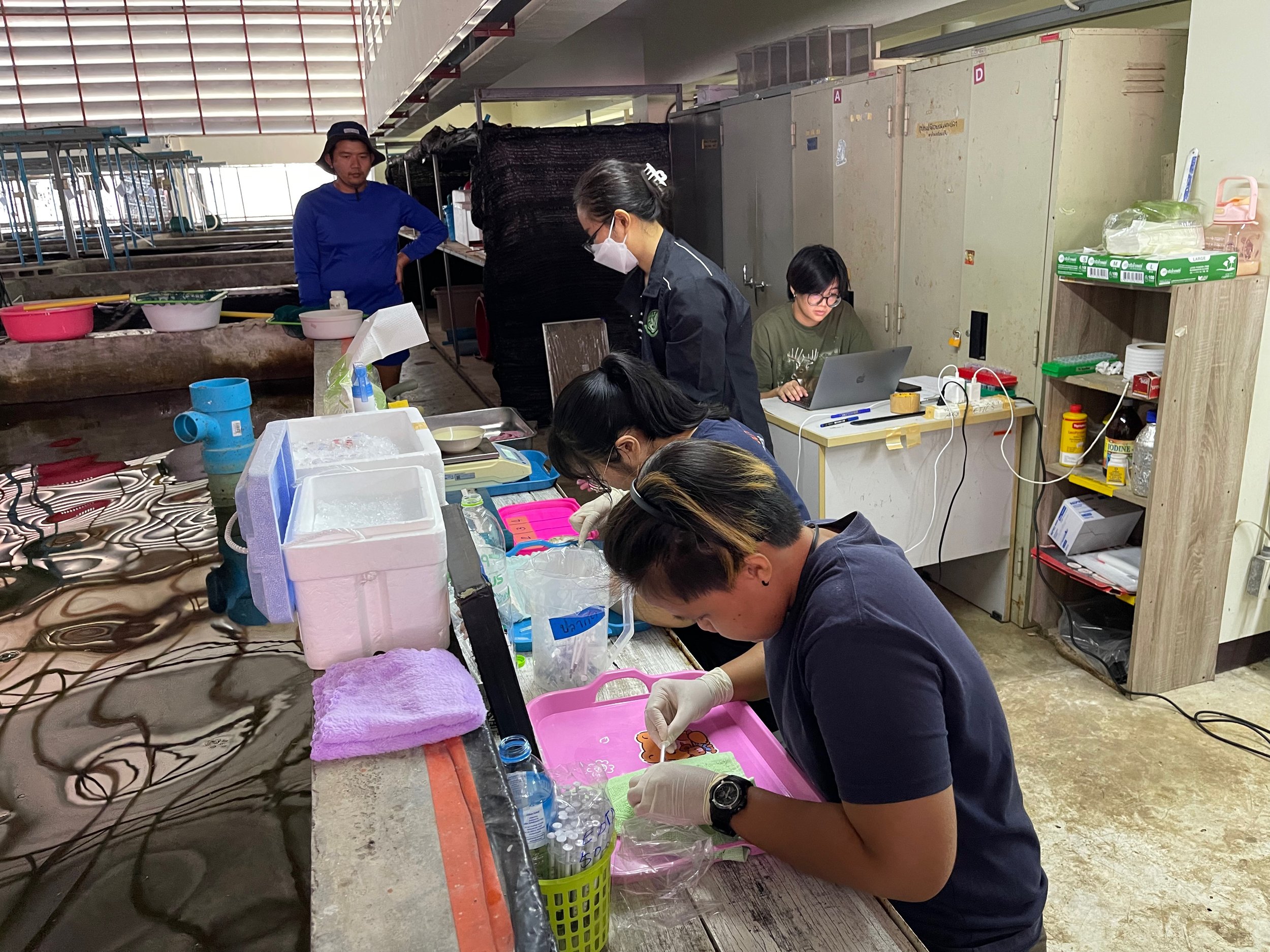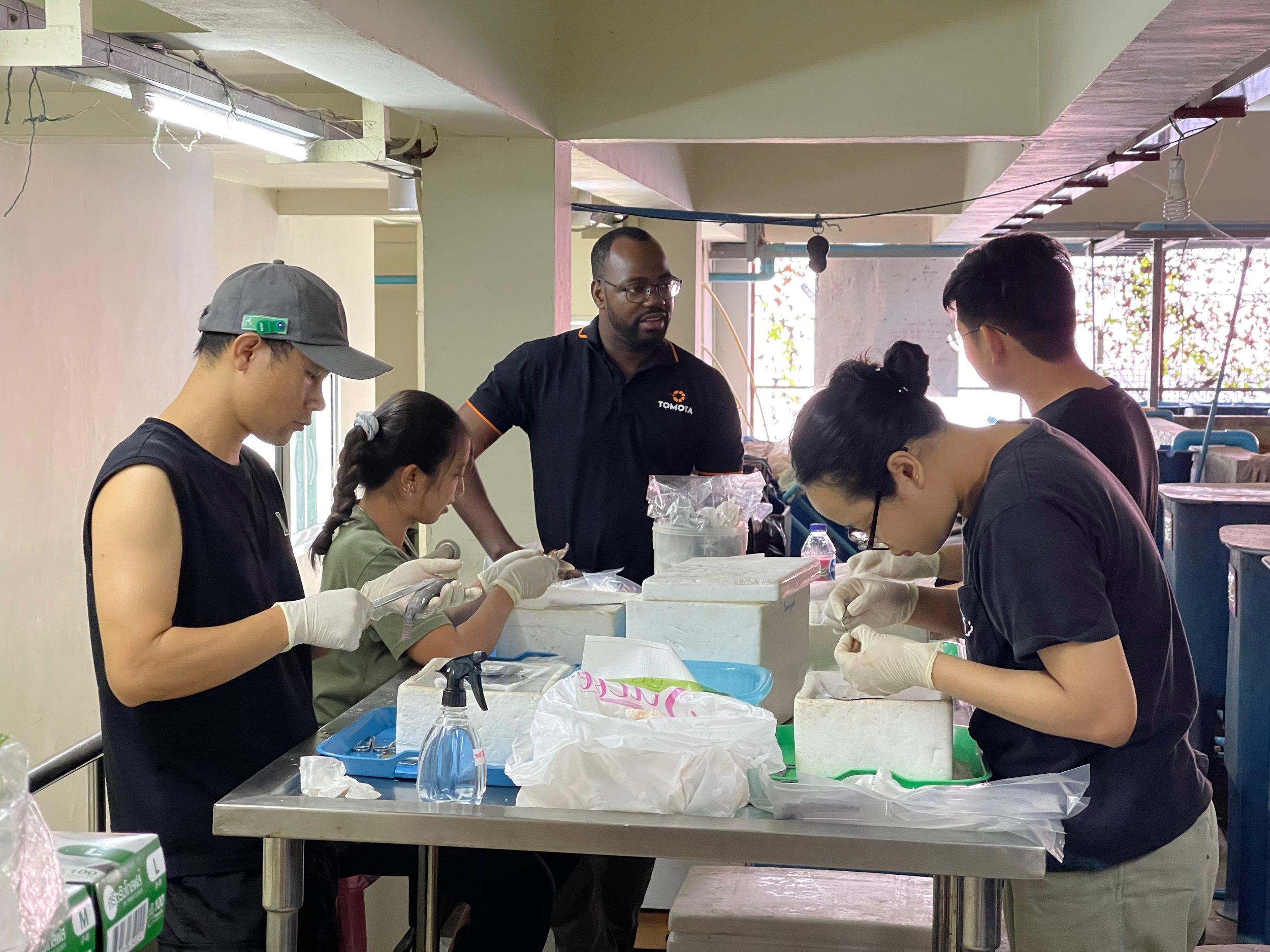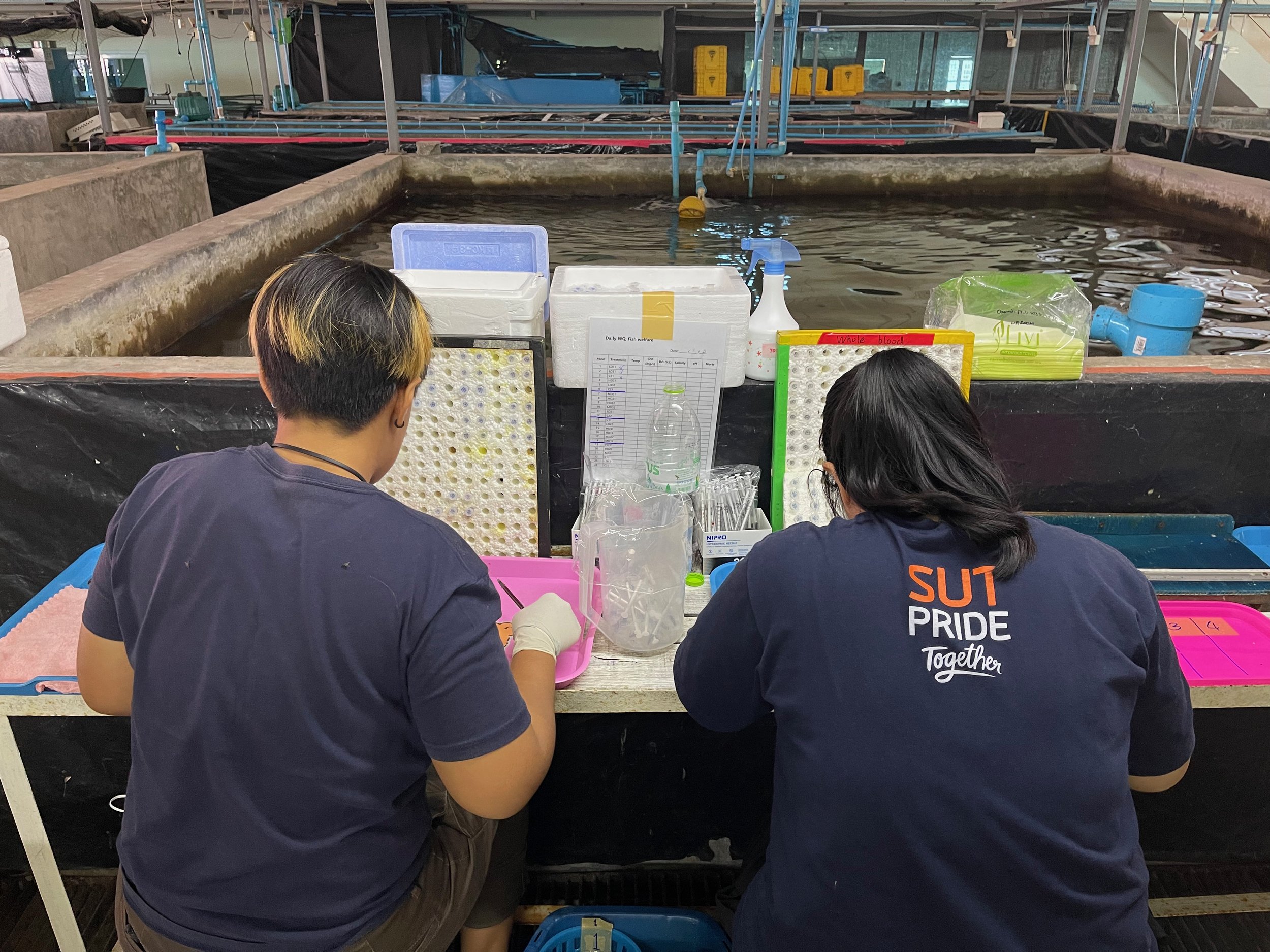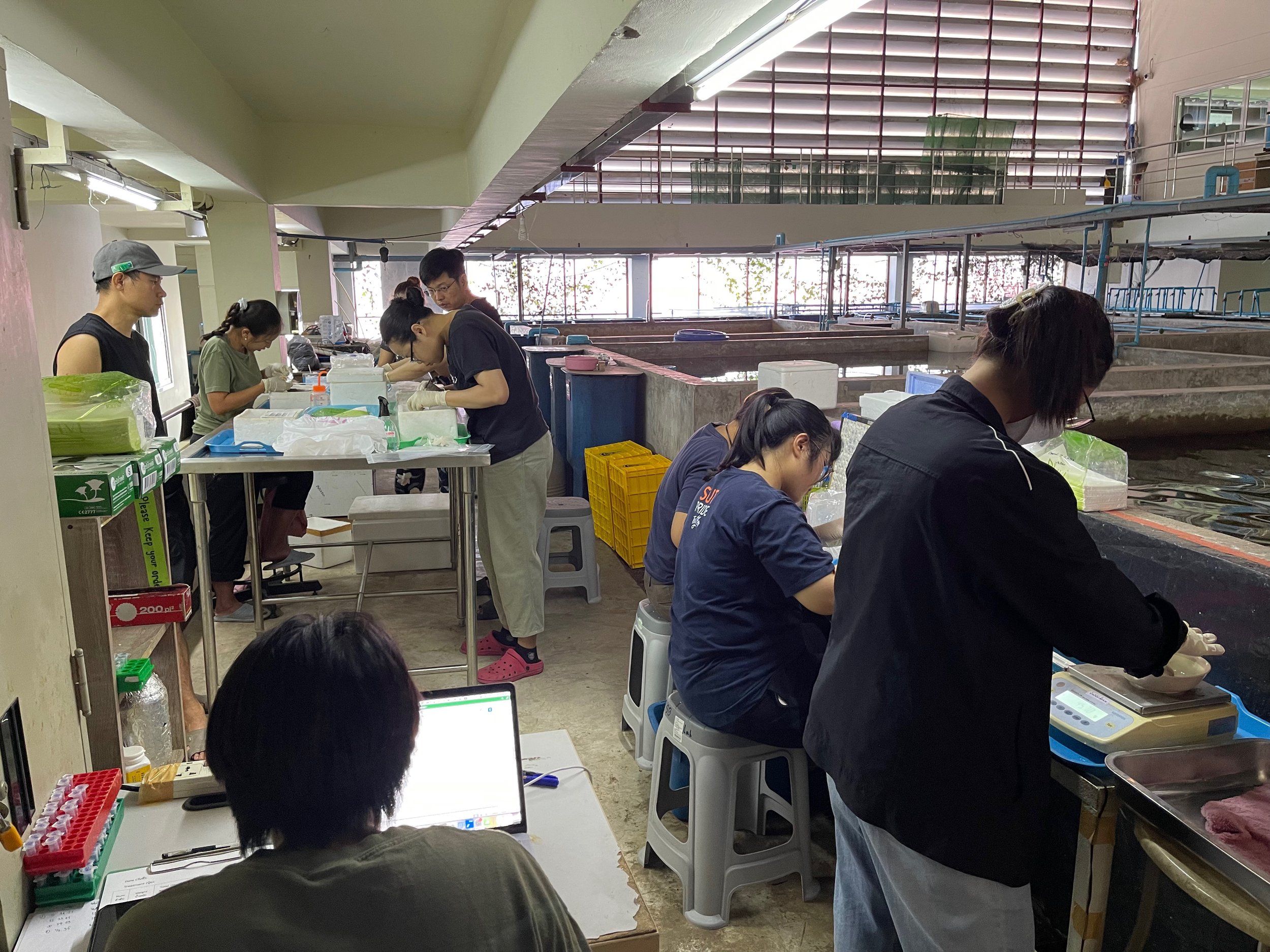The team at Suranaree University of Technology led by Associate Professor Surintorn Boonanuntanasarn have completed trials on the “Effects of stocking density and time during transportation on stress, behavioural and morphological observations and metabolic changes in Nile tilapia fry and their impact on growth performances, survival and health status through juvenile stage”
The aim of this project is to examine the impact of stocking density on Nile tilapia fry transportation. This project also investigates the effects of stocking density for transportation to long-term fish culture.
Fig. 1 Fish were cultured in a cement pond (2 x 2 x 0.8 m) after 6 hours transportation
Practically, transporting Nile tilapia fry (21-28 days post-hatching) in fish farms involved packing 800–1,000 fry as a stocking density into plastic bags with 2.5 litres of water and oxygen, which could last for up to 6 hours. In this study, fish were cultured for 3 months in a cement pond (2 x 2 x 0.8 m) following 6 hours transportation in plastic bags to examine the effects of transportation (Fig. 1). The experimental design for the fish culture experiment were completely randomised, with three stocking densities during transportation (low density, moderate density, and high density) and control fish (fish that are cultivated in ponds). The fish were hand-fed ad libitum twice a day for 3 months during fish culture. pH, DO, and temperature of the water were measured daily. Ammonia and nitrite levels were assessed weekly. Growth performance was assessed monthly.




Fish were sampled at the end of 3-month culture experiment (Fig. 2). Blood samples were collected from caudal vein. Plasma and serum were collected and kept at -80 °C for further blood chemical analysis. Subsequently, liver and muscle were collected and stored at -80°C for examination of their chemical composition and glycogen. Additionally, liver and muscle samples were collected and kept at -80°C to for RNA extraction.
The results are now being analysed and will be reported here in due course.

